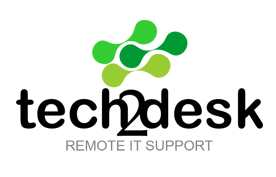The COVID-19 pandemic has reshaped how we work, with remote work becoming the new norm for many organizations worldwide. As a result, the field of IT support has undergone significant changes to accommodate the unique challenges and demands of supporting end users in a remote work environment. In this article, we will explore how remote work has transformed IT support for end users and the emerging key trends.
Increased Reliance on Remote Tools and Technologies
With remote work becoming widespread, IT support has had to adapt to the increased reliance on remote tools and technologies. Remote desktop solutions, virtual private networks (VPNs), and video conferencing platforms have become essential for IT professionals to troubleshoot and resolve technical issues for end users who are working from home. These remote tools have enabled IT support teams to remotely access end users’ devices, diagnose problems, and provide solutions without needing to be physically present, reducing the need for on-site support.
Heightened Focus on Cybersecurity
The shift to remote work has also brought about a heightened focus on cybersecurity. With end users working from various locations and using different devices, the risk of security breaches has increased. To protect end users ‘ devices and data, IT support teams have had to implement enhanced security measures, such as multi-factor authentication, virtual private networks (VPNs), and advanced threat detection systems. Additionally, IT support has played a crucial role in educating end users about best practices for remote work, including password hygiene, avoiding phishing attacks, and safeguarding sensitive information, to mitigate the risks associated with remote work.
Increased Emphasis on Remote Communication and Collaboration
Effective communication and collaboration are critical in a remote work environment, and IT support has played a pivotal role in facilitating these processes for end users. IT support teams have had to adapt to new communication channels, such as video conferencing, instant messaging, and collaboration platforms, to provide real-time assistance and guidance to end users. Remote communication tools have become essential for IT support to stay connected with end users, understand their technical issues, and provide prompt resolutions. Moreover, IT support has played a key role in implementing and managing collaboration tools, such as project management platforms and cloud-based document sharing, to enable end users to collaborate seamlessly from remote locations.
Greater Emphasis on End User Empowerment
Remote work has shifted the paradigm of IT support from traditional hands-on support to a more end user-centric approach. IT support teams have empowered end users by providing self-service tools and resources, creating knowledge bases, and offering remote training and tutorials to help end users resolve common technical issues on their own. This has not only reduced the burden on IT support teams but also empowered end users to become more self-sufficient in managing their technology needs while working remotely.
Enhanced Flexibility and Scalability of IT Support
Remote work has necessitated the need for IT support teams to be flexible and scalable in their operations. The need for 24/7 support, quick response times, and the ability to provide support across different time zones has become crucial in a remote work environment. IT support teams have had to adapt their processes and workflows to ensure seamless support regardless of the physical location of end users. This has often required the use of remote monitoring and management (RMM) tools, ticketing systems, and service level agreements (SLAs) to provide efficient and timely support to end users.
Adapted to these changes by leveraging advanced technologies and implementing new processes to ensure efficient and effective support for end users working remotely.
In this evolving landscape, Tech2Desk has emerged as a leading provider of IT support services that are tailored for remote work. With their expertise in remote desktop solutions, cybersecurity measures, and remote communication tools, Tech2Desk has been at the forefront of helping organizations navigate the challenges of remote work and provide seamless IT support to end users. Their focus on empowering end users through self-service tools and resources, coupled with their flexible and scalable approach, has made them a trusted partner for businesses across various industries.
Conclusion
The shift to remote work has brought about significant changes in IT support for end users. The reliance on remote tools and technologies, heightened focus on cybersecurity, emphasis on remote communication and collaboration, greater end-user empowerment, and enhanced flexibility and scalability of IT support have become critical factors in ensuring smooth operations in a remote work environment.
With Tech2Desk’s expertise and tailored solutions, businesses can confidently navigate these changes and provide reliable IT support to their remote workforce, empowering them to work efficiently and securely from anywhere.
Dimitri Vouzounerakis
AMVIRAL | TECH2DESK

